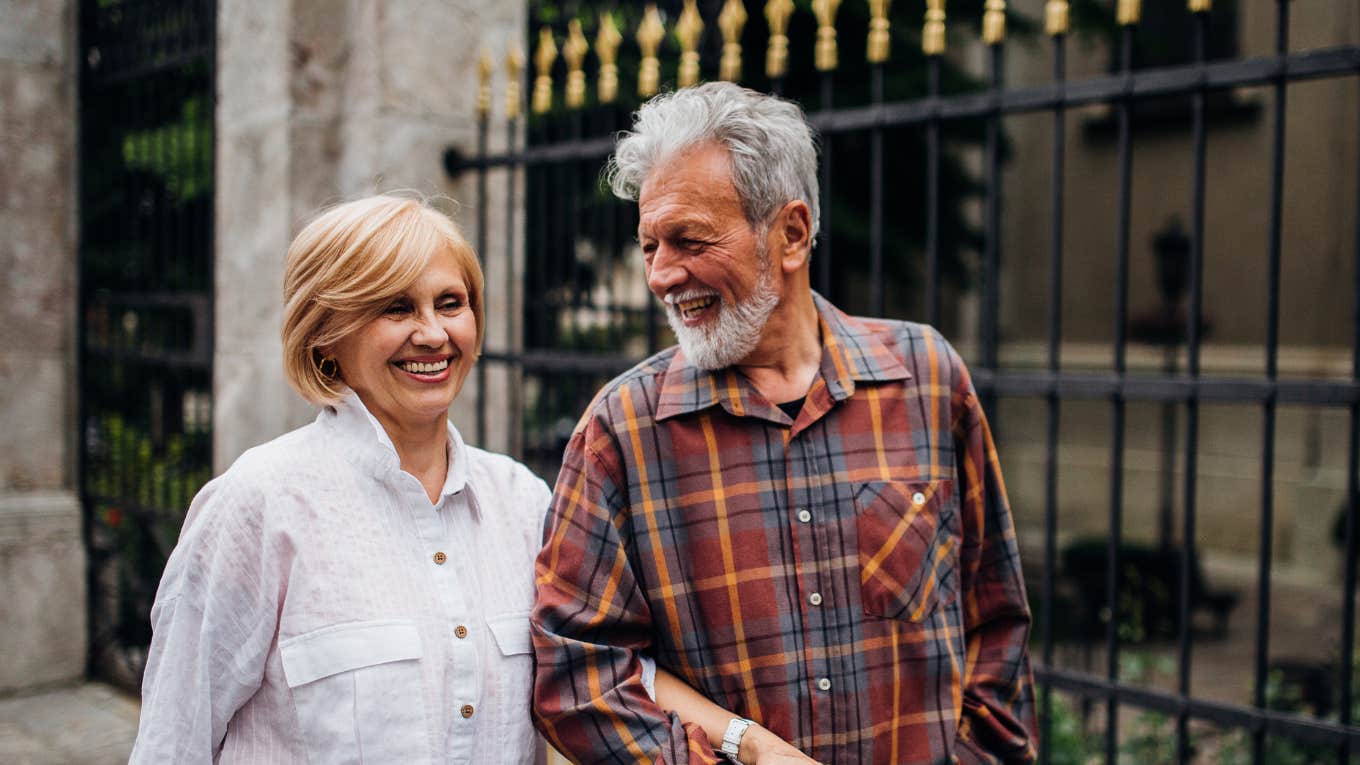Psychology Says If You Can Master These 4 Skills, Your Relationship Is Set For Life
All you need to know to foster a successful relationship that lasts.
 MixMedia | Canva
MixMedia | Canva I've been coaching people through relationship pain for several years now. I'm good at what I do. I've helped hundreds of people — maybe more — overcome obstacles that get in the way of easy, satisfying, mutual relationships.
Although I admit to being insanely happy in my marriage, I come up against relationship snags just like everyone else. It's just that I'm committed to working through them using the tools and perspectives I teach. Or at least doing my best to try.
If you can master these four skills, your relationship is set for life:
1. Stop repeating toxic patterns
We all fall into patterns — those pesky habits we think were over until bam! — you find yourself right back in them. You're attracted to the same emotionally closed-off guy over and over; your relationships all begin or end with the same dramatic scene; or you and your partner have the same "discussion" (i.e., argument) every single night.
Whatever the flavor of your personal patterns, you don't have to keep being a victim of them. End your pattern by becoming aware. Uber aware.
Know what triggers your pattern (e.g., what tips off that nightly conversation) so you can stop the cycle before it starts running without your permission. Then decide how you want to act instead.
What's your ideal state if your pattern didn't exist? Consciously replace your patterned response with an action that matches how you want things to look.
For example, if you find yourself always wanting to end relationships at the one-month mark because they're getting boring, make a commitment to take the next relationship to at least the 6-week mark. It will feel foreign because it is.
Your ego will try to convince you to end it sooner — don't listen. You can handle a little discomfort in the name of growth.
2. Know what you want so you can have it
 Lucas Pezeta / Pexels
Lucas Pezeta / Pexels
Clarity around what you want is essential to having what you want. Knowing what you want can lead to higher relationship status, research from 2011 confirms. Your end goal is like the destination you program into the GPS — the clearer your final destination, the faster the GPS can get you there.
What kind of relationship do you want? What does it look like? Most importantly, what does it feel like?
Feel it and see it now. It's okay to revise or change it later. You can always tweak the exact destination but to get things moving, you need to at least know what direction you're headed.
Cutting through fears and expectations so that you know what you want is not always easy. Listen to the still, small voice, not the raving maniac that threatens you into settling for something less than what you truly want. How do you listen? Be quiet. Question your thoughts. Don't believe everything you think. Tap into the kind of relationship that feels good and when you find it, keep your focus there.
3. Understand that happiness — and only your happiness — is your responsibility
We all tend to act as if our happiness depends on others. If they would just do this, or say that, you could feel better. Except it doesn't work that way. Your feelings are up to you.
An easy way to be happy, according to a 2005 study, is to focus on the good things in your life. You feel the way you feel because of the way you interpret events and the stories you tell yourself, not because of anything they do or say. It's not even possible any other way.
It's also not possible for you to make them feel any particular way, either. That doesn't mean you shouldn't do your best to be kind. It means you decide to be kind because you feel good when you're kind, not to elicit some feelings in them.
If you're kind with an agenda, you'll eventually be disappointed. And if you wait around for someone to make you feel good, you'll definitely be disappointed.
4. Forgive and give more
 Shukhrat Umarov / Pexels
Shukhrat Umarov / Pexels
What hurts us most is not that others don't show us enough love, but that we don't show them enough love. When we perceive someone holding back on us, it's natural to hold back on them in self-defense, but it's our own holding back that really hurts us.
If you want to feel better, love more, not less. Yes, even when they just told you they are not interested, love them more. According to research from Harvard University, forgiveness is associated with lower levels of depression, anxiety, and hostility.
Even when you just broke up, love them more. Make no mistake, loving them doesn't have to involve them. It can be as simple as forgiving them for any hurt you feel and wishing them well in your mind. Sending them love from the comfort of your own home where they are none the wiser. Forgiving and giving more is something you do for yourself, not for them.
Instead of falling into these traps, show up in your relationships fully aware so that your choices are conscious, not just a repetition of what comes naturally. Get clear on exactly what you want your relationship to feel like.
Make your own happiness so that you don't keep someone else on the hook for it. And give freely of yourself, no matter what, with no agenda.
Consider these a-ha’s to be relationship pain-deterrent. The formula — as I've experienced myself and seen in many others — for becoming a recovered relationship sufferer. They are well worth your effort, trust me.
Dr. Amy Johnson is a psychologist whose passion is helping people recognize and change unwanted patterns.

